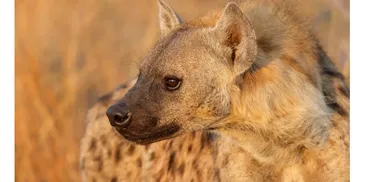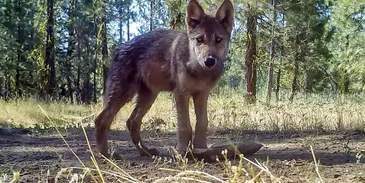The Javan ferret-badger (Melogale orientalis) is a small, nocturnal carnivore endemic to the island of Java, Indonesia. It has a slender body, short legs, and dark brown to black fur with striking white facial markings, including a white stripe down the nose and pale patches around the eyes and ears. Adapted to forests and mountainous areas, it is an omnivore, feeding on insects, small animals, fruit, and carrion. Agile and elusive, the Javan ferret-badger often shelters in burrows or rock crevices during the day. Although not well-studied, it is currently listed as Least Concern, but it may face localized threats from habitat loss.

Javan ferret-badger (Melogale orientalis)
Melogale orientalis

My First Reaction Was Disbelief – Spotted Hyena Seen in Egypt for First Time in 5,000 Years [Discover Wildlife – January 22, 2025]
What’s This Story About: A spotted hyena was spotted—and killed—in southeastern Egypt, marking the species’ first confirmed presence there in 5,000 years. Found 500km north of its expected range, this unexpected sighting has scientists scrambling to understand what it was doing so far from home.
Why This Story: This incident raises serious questions about shifting habitats, climate pressures, and fragmented ecosystems. That a lone hyena wandered into unfamiliar terrain—and was immediately killed for acting like a predator—says more about human intolerance than natural behavior.

The Indigenous Range of the Tiger (Panthera tigris) [Diversity and Distribution, a Journal of Conservation Biogeography – January 18, 2025]

A new wolf pack, irate ranchers, and the astonishing comeback of California’s most celebrated predator [San Francisco Chronicle – October 13, 2024]
What’s This Story About: A newly formed wolf pack has been spotted in Northern California, marking a major milestone in the species’ return to the region. While conservationists are celebrating the comeback, local ranchers are voicing concern over livestock safety and increased tension with wildlife.
Why This Story: It’s challenging to call the wolf’s return to northeastern California a government conspiracy when the critters came back on their own.
More accurately and appropriately, you can call their return a great example of natural rewilding. Wolves belong in California us much as we humans do, both species are native to the area.